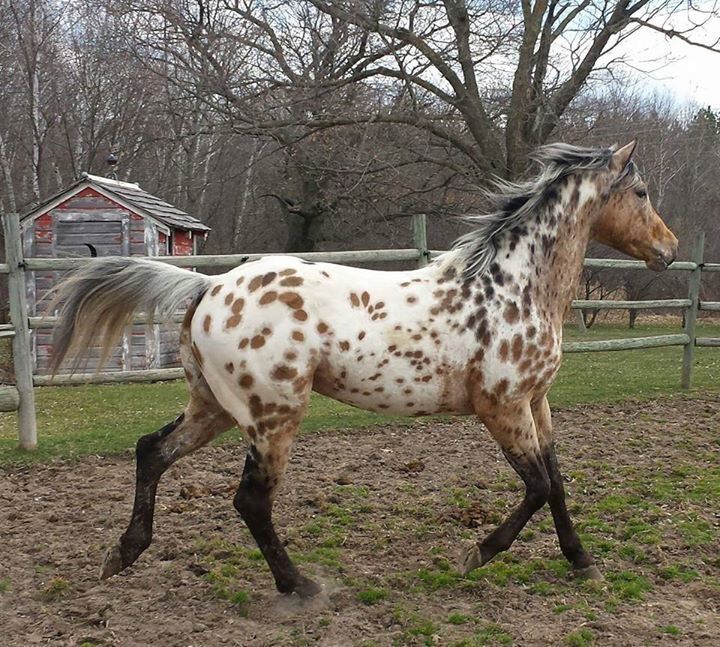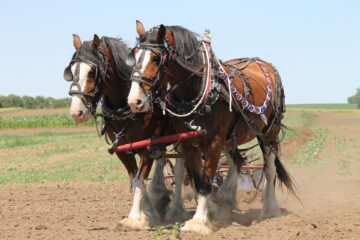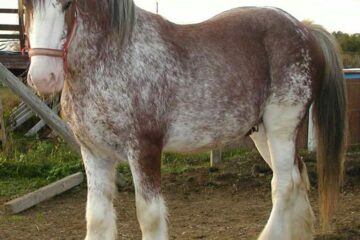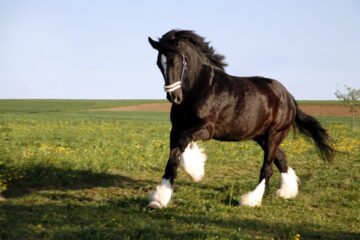
Introduction to Appaloosa Horse
The Appaloosa horse, often referred to simply as the “Appaloosa,”. This is a breed that weaves together a stunning array of coat patterns and exceptional characteristics, making it a true masterpiece in the equine world. With a rich history, unique appearance, and fascinating traits, the Appaloosa stands as a tapestry of beauty and elegance that commands our admiration and respect.
Characteristics of Appaloosa Horse
Appaloosas are renowned for their distinctive coat patterns that range from classic “leopard” spots to intricate blankets and roans. Beyond their striking appearance, these horses possess remarkable intelligence, strength, and versatility. This adaptable nature makes them suitable for various disciplines, catering to riders of all levels.
History of Appaloosa Horse
The fascinating history of the Appaloosa horse dates back centuries, entwined with Native American culture and the American West exploration. The Nez Perce tribe significantly influenced the breed, selectively breeding for utility and beauty. Spanish explorers introduced distinct patterns, enriching lineage and diversity, enhancing the Appaloosa’s appeal.
Famous Traits of the Appaloosa
What sets the Appaloosa apart is not only its striking coat patterns but also its mottled skin, a feature rarely seen in other horse breeds. This breed’s combination of diverse coat patterns and mottled skin adds to its captivating allure and sets it apart as a true equine gem.
Global Presence
Appaloosas are found in various parts of the world, with their popularity extending beyond their historical origins. Equestrians cherish these horses. worldwide, thanks to their adaptability and unique appearance. Their versatility allows them to excel in a range of disciplines. From Western riding and rodeo events to dressage and trail riding.

Average Age and Breeding Month
Appaloosas, like all horse breeds, have an average lifespan that varies depending on factors such as care, genetics, and lifestyle. On average, they can live into their late twenties or early thirties when provided with proper care and attention.
The best breeding month for Appaloosas tends to be in the spring, aligning with the natural breeding season for horses. This ensures that foals have the advantage of being born during favorable weather conditions, giving them a better start in life.
Diet Preferences
Appaloosas, like any other horse, thrive on a balanced and nutritious diet. While individual preferences can vary, these horses generally enjoy a diet rich in quality hay, supplemented with grains and fresh vegetables. Adequate hydration is also crucial to their well-being.
A Unique Connection
One of the most endearing qualities of Appaloosas is their ability to forge deep connections with their human counterparts. Their intelligence and willingness to bond make them cherished companions, enhancing the partnership between rider and horse.
Cultural Significance: Appaloosas in Native American Traditions
For centuries, the Appaloosa horse has held a special place within the tapestry of Native American cultures. Beyond its striking coat patterns and remarkable characteristics, the Appaloosa’s role in Native American traditions is deeply woven into the fabric of history. Let’s delve into the cultural significance that these majestic horses have held for various indigenous tribes across the Americas.
Preservation and Appreciation
The Appaloosa horse breed is truly awe-inspiring with its stunning appearance and adaptability. It is crucial to recognize the dedication of breeders and organizations that work tirelessly to preserve the genetic diversity and historical significance of the breed. The Appaloosa Horse Club, among others, plays a significant role in promoting responsible breeding practices and preserving the unique heritage of the breed.
Common Diseases in Appaloosa Horses
While Appaloosa horses are known for their resilience and unique beauty. Like all breeds, they are susceptible to certain health issues. Understanding the common diseases that can affect Appaloosas is essential for responsible ownership and proper care. Here are some of the prevalent diseases that Appaloosa horses might face:
- Equine Recurrent Uveitis (ERU)
- Equine Metabolic Syndrome (EMS)
- Cushing’s Disease (Equine PPID)
- Appaloosa Guttural Pouch Tympani
- Skin Conditions
- Colic
Home Remedies for Common Horse Ailments
For minor horse health issues, some home remedies can provide relief while waiting for veterinary care. For skin conditions like rain rot or mild cases of ringworm, a mixture of diluted apple cider vinegar and water can be applied topically. This natural solution has antimicrobial properties that may help prevent further infection. Additionally, for soothing itchy skin, aloe Vera gel can provide relief and promote healing.
When dealing with mild colic symptoms, offering a bran mash mixed with warm water can help alleviate discomfort and encourage hydration. However, it’s crucial to monitor the horse closely and seek veterinary assistance if the symptoms persist or worsen. For promoting joint health and managing symptoms of Equine Recurrent Uveitis (ERU) or Equine Metabolic Syndrome (EMS), a diet rich in Omega-3 fatty acids, such as flaxseed oil, may offer anti-inflammatory benefits. Nonetheless, always consult a veterinarian before administering any home remedies to ensure the horse’s safety and well-being.
Conclusion
The Appaloosa horse breed stands as a living testament to the harmonious relationship between humans and animals. With its captivating coat patterns, exceptional intelligence, and rich history, the Appaloosa is a breed that invites us to appreciate its splendor. As we honor their legacy, let us also ensure their continued preservation for generations to come, allowing the tapestry of beauty and elegance to flourish on the canvas of history.
Read More about



0 Comments